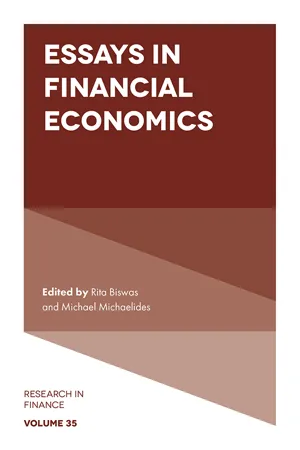1. INTRODUCTION
The global financial crisis that started in 2007 and continued in 2008 has shaken the world by destabilizing the economy of many countries such as Italy (Cucinelli, 2015). Indeed, Italian economy which is the ninth largest economy of the world and the third largest economy in the eurozone1 has experienced a period of recession behind the crisis. (The annual percentage change of GDP is fallen from 2.199% in 2006 to 2.361% in 2009.)2 The collapse of Italian economy is explained by many analysts due to many reasons especially the country’s uncertain political landscape and unclear economic reform plans. For these reasons, Fitch Ratings downgraded Italy’s sovereign debt from BBB+ to BBB because of the country’s unsolved economic problems particularly the fragility of banking system.3
The emergence of this crisis and the economic recession that followed as in Italy has raised several questions about the role of financial derivatives in such an incident.
Therefore, special attention has been given by several studies to the effect of derivatives on bank risk and performance in particular.
The lack of empirical papers on the effect of derivatives on bank profitability – as the central indicator of performance – calls for more specific attention. This is one of the issues behind the motivation of this study to examine specifically the profitability of Italian banks by using derivatives. The answer to this issue will be very important to realize the role of derivatives in the fragility of Italian banking system or even the slump of Italian economy behind the global financial crisis.
To reach this goal, we conduct dynamic panel regressions using Generalized Method of Moments (GMM) estimator technique as developed by Arellano and Bover (1995) on 22 Italian banks over the long period 2005–2017. The dependent variable is one of the reliable profitability measures defined by return on assets (ROA) and return on equity (ROE) which are largely used in the literature (Fayed, 2013; Titko, Skvarciany, & Jurevičienė, 2015) and proved their robustness and consistency especially in the study of Albulescu (2015). The independent variables are composed by one of the variable of interest (overall derivatives, forwards, options, swaps, and futures) and the control variables (leverage, capital adequacy, liquidity, risky assets, bank’s credit quality, and net interest margin). The separation between the variable of interests allows us to conclude about similaraties or differences in the results between the effect of derivatives in the whole and the effect of each derivative instrument. In fact, all the previous studies (Ghosh, 2017; Gitogo, 2012; Said, 2011; Shen & Hartarska, 2013) have investigated the effect of derivatives in the whole on banks’ profitability without separating between the instruments. Hence, this work will fulfill this gap in the literature by examining the effect of each derivative instrument on banks’ profitability additionally to the effect of derivatives in the whole. This also will lead us to assess more visibly the convergence or the divergence of results when separation between derivative instruments is made.
The first objective of this research is to investigate the effect of derivatives use on the profitability of Italian banks. The second objective of this study is to check-up whether derivatives are implicated in the recent collapse of the Italian economy.
This work provides several contributions as well as for related literature and also experts and policy-makers. First, this piece fulfills the gap in the literature investigating the effect of derivatives use on banks’ performance and profitability in particular. Second, it is one of very few researches focusing this issue on Italian banks. Third, this work is a pioneer to estimate individually each derivative instrument in order to make proof about the convergence or the divergence between the effect of overall derivatives and the effect of each instrument. Finally, this chapter offers evidence for Italian policy-makers as regards the role played by derivatives during the recent Italian economy crisis.
The main outcomes of this study reveal that using derivatives makes Italian banks more profitable.
The remaining of this piece is structured as follows Section 2 describes and shows statistics about the sample. In Section 3, after theoretical revised about profitability, the literature investigating the relationship between derivative use and profitability is reviewed. Section 4 explains the methodology applied. In Section 5, hypotheses are stipulated referring to the related literatur...
